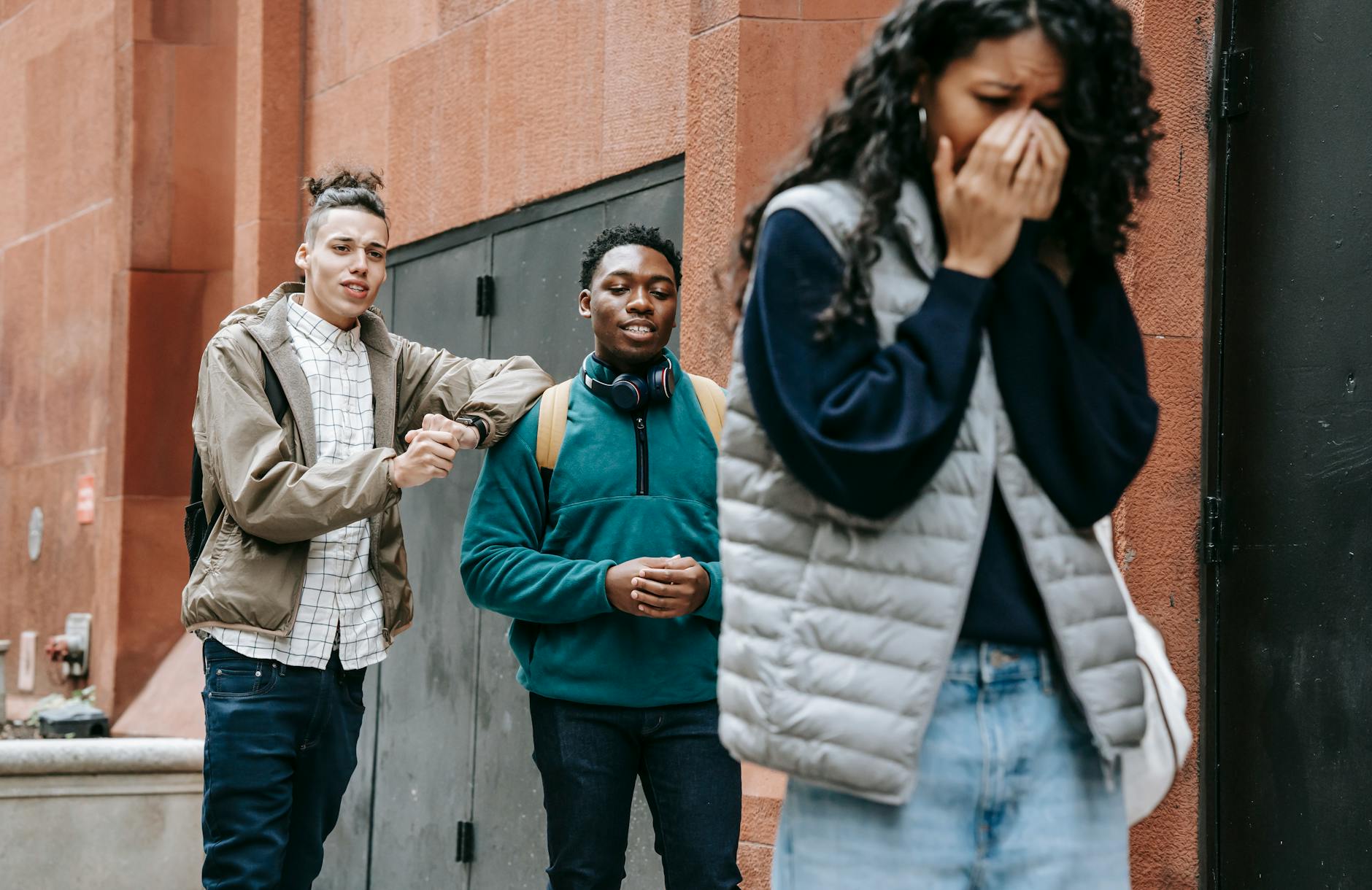Let’s be honest. You’ve probably googled “how to make new friends” at 2 AM while scrolling through social media, watching other people hang out and wondering why adult friendship feels like solving a Rubik’s cube blindfolded.
If that’s you, welcome to the club. Membership is free, and we’re all confused together.
Making new friends when it feels almost impossible isn’t about being more outgoing or magically becoming a social butterfly. It’s about understanding what actually works in the real world, not the highlight reel version of friendship we see online. I’ve been there, feeling like the last person picked for dodgeball, except now it’s just life.
Here’s what I’ve figured out after way too many awkward coffee dates and group events where I knew exactly one person. Spoiler: it gets easier once you stop trying so hard to force it.
First Things First: It’s Supposed to Feel Hard Right Now

Before you beat yourself up for not having a packed social calendar, let me tell you something nobody mentions enough. Feeling like making friends is impossible is actually a sign you’re being realistic, not pessimistic.
Think about it. When was the last time you had hours of unscheduled time to just hang out? When did you last run into the same people repeatedly without planning it? Exactly. Modern life isn’t designed for spontaneous friendship anymore.
Everyone’s locked into their routines. Work, home, Netflix, sleep, repeat. The people who already have friend groups? They built them years ago in college or through work. Breaking into established circles feels like trying to join a conversation that started three hours ago.
Here’s the truth: you’re not broken, the system is. Once you accept that the difficulty isn’t personal, you can stop wondering what’s wrong with you and start figuring out what actually works.
8 Real Ways To Make New Friends (Even When It Feels Impossible)
1. Stop Waiting For Perfect Friendship Moments

You know what kills potential friendships before they start? Waiting for some magical “perfect moment” to connect with someone. That coworker you chat with occasionally? That person at the gym who always uses the treadmill next to yours? Stop waiting for them to become your best friend overnight.
Start treating casual acquaintances like they matter because they do. Say hi consistently. Remember their name. Ask one follow-up question about something they mentioned last time. That’s it.
I spent years dismissing people because we didn’t have that instant click. Turns out, most of my actual friends now started as people I barely noticed at first. The connection built slowly through repeated small interactions, not through some cosmic friendship spark. The “perfect moment” is just the next time you see them. Use it.
I break down exactly how to build these small interactions into real friendships in my article about how to make friends as an adult.
2. Get Comfortable With Rejection (Seriously)

Here’s something nobody wants to hear but everyone needs to accept: not everyone will want to be your friend, and that’s completely fine. Some people already have full social calendars. Some just won’t vibe with you. Some are dealing with their own stuff and don’t have energy for new friendships.
None of that is about you being unlikeable or doing something wrong. It’s just math. You’re not going to click with everyone, and everyone won’t click with you.
I’ve texted people suggesting we grab coffee and gotten zero response. I’ve had great conversations that never went anywhere. I’ve joined groups where I felt invisible. All of that happened, and I still made friends eventually.
The trick is not taking it personally and not letting a few “no thanks” responses stop you from trying with other people. Think of it like job hunting. You don’t get every job you apply for, but you only need one yes.
3. Use Your Existing Network (Even the Weak Ties)

Stop overlooking the people already in your orbit. That friend-of-a-friend you met once at a party? The person who likes all your Instagram posts but you never talk to? Your cousin’s roommate who seems cool? These “weak ties” are friendship gold.
Reach out. Send a DM. Suggest meeting up. The barrier to entry is lower because you have mutual connections, which makes the interaction feel less random and risky for both of you.
I made one of my closest friends by reaching out to someone I’d met briefly at a wedding two years earlier. We had each other on social media, occasionally commented on posts, and I finally just messaged saying “Hey, want to check out that new coffee place?” She said yes, we clicked, and now we talk weekly.
FYI, people are usually flattered when you reach out. Most folks assume others aren’t interested in hanging out with them, so your initiative often gets a positive response.
4. Show Up to Things You’d Enjoy Anyway
Forget joining activities just to meet people. That’s exhausting and obvious. Instead, do things you genuinely want to do, and let friendships happen as a side effect.
Like reading? Join a book club. Into fitness? Try that group workout class. Enjoy gaming? Hit up local gaming meetups or online communities. The key is picking activities where you’d have fun even if you didn’t make a single friend.
This approach works because you’re already in a good mood doing something you enjoy, which makes you more approachable and authentic. Plus, you automatically have something in common with everyone there, which gives you built-in conversation topics.
I joined a pottery class because I wanted to learn pottery, not because I wanted friends. But guess what? Sitting next to the same people for eight weeks while we all made progressively less ugly bowls led to actual friendships. Shared experiences build bonds.
Want more specific ideas on where to meet people? Check out my guide on making friends as an adult with a full list of places that actually work.
5. Be The One Who Plans Stuff
Most people are passive about friendship. They wait for invitations, hope someone else will organize things, and then wonder why their social life is dead. Don’t be most people. Be the organizer.
Suggest specific plans. Not “we should hang out sometime” but “want to grab lunch on Saturday at that Thai place?” Give people an easy yes or no option with concrete details.
Yeah, it feels vulnerable. What if they say no? What if you’re putting in more effort than they are? Here’s the thing: someone has to go first. Might as well be you.
Some of the friendships I value most exist because I was willing to be the person who texted first, who suggested meetups, who organized group hangs. Eventually, it becomes reciprocal, but someone has to start the momentum.
6. Lower Your Expectations (In a Good Way)
Stop expecting new friends to fill every social need immediately. You don’t need a new best friend. You need people you enjoy spending time with occasionally. That’s it.
Maybe you grab coffee with one person monthly. Maybe you text memes with another. Maybe a third person is your workout buddy and that’s the extent of it. All of these count as friendships, and they’re all valuable.
I used to think if someone wasn’t down to hang out multiple times a week, they weren’t a “real” friend. That’s ridiculous and unrealistic. Adults have jobs, relationships, families, hobbies. Nobody has time for that level of intensity anymore.
Appreciate people for what they can offer, not for what you wish they could be. A friend you see once a month is still a friend.
7. Talk About Real Stuff (Not Just Surface Level)
Small talk is fine for initial interactions, but if you want actual friendships, you need to move past “how’s the weather” eventually. Share something real about yourself. Ask questions that go deeper than “what do you do for work?”
This doesn’t mean dumping your entire life story on someone you just met. It means being willing to share opinions, experiences, struggles, or interests beyond the absolute basics.
When someone asks how your weekend was, don’t just say “good.” Tell them about the book you’re reading or the weird thing that happened at the grocery store. Give them something to latch onto and respond to.
IMO, people connect over vulnerability and authenticity, not over perfectly curated versions of themselves. The friendships that last are built on actually knowing each other, not on polite surface-level chatter.
8. Give It Time (Like, Actual Time)
Research says it takes about 50 hours of interaction to move from acquaintance to casual friend, and 200 hours to become close friends. Let that sink in. You’re not going to build a solid friendship in three coffee dates.
Stop judging potential friendships too quickly. That person who seemed “just okay” the first time you hung out? Give them another shot. And another. People reveal themselves slowly, and sometimes the best friendships are the ones that sneak up on you.
I’ve had friendships where I thought “eh, they’re nice but we probably won’t be close” and six months later we’re texting daily. I’ve also had instant connections that fizzled out after a few weeks. You can’t predict which interactions will turn into real friendships, so keep showing up.
Consistency beats chemistry in the long run. The people you see regularly, even if there’s no fireworks, often become the people you genuinely care about.
Stop Comparing Your Social Life to Others
You know what makes making friends feel impossible? Scrolling through social media and seeing everyone else’s friend groups doing fun things together. Here’s what that comparison misses: you’re seeing the highlight reel, not the full picture.
That group photo? They probably see each other twice a year. Those “besties” in every post? One of them is probably feeling left out half the time. The person with the most active social life online might be the loneliest in real life.
Social media is performance, not reality. Stop using it as a measuring stick for your own friendships. The person with three solid friends they see regularly is doing better than the person with 50 “friends” they never actually spend time with.
Focus on your own social life without comparing it to anyone else’s. You don’t know their full story, and they don’t know yours.
Accept That Some Seasons Are Lonely
Sometimes, despite your best efforts, you’re going to go through periods where friendship feels impossible and you’re just… lonely. That’s not failure. That’s just life sometimes.
Maybe you moved to a new city. Maybe your friend group scattered after a major life transition. Maybe you’re in a demanding phase of work or personal life and don’t have energy for socializing. All of that is normal.
These lonely seasons don’t last forever, but they also don’t disappear just because you want them to. You can do everything “right” and still feel disconnected for a while. That’s okay.
Use the time to invest in yourself, pursue solo hobbies, strengthen family relationships, or just rest. The pressure to constantly have a thriving social life is exhausting. Give yourself permission to have an off-season.
When you’re ready and have more capacity, you can put yourself back out there. Friendship isn’t a constant state. It ebbs and flows.
Embrace Different Types of Friendships
Not all friendships need to look the same. Stop forcing every new connection into the “best friend” mold. Different people serve different purposes in your life, and that’s not only okay, it’s healthy.
You might have:
- Activity friends who you only see in specific contexts (gym buddy, book club friend)
- Deep talk friends who you see rarely but have meaningful conversations with
- Fun friends who are great for laughs but not for serious stuff
- Convenience friends who you see often because of proximity, not deep connection
- Online friends who you’ve never met in person but still matter
All of these are valuable. All of these count. You don’t need every friend to fulfill every need.
I have friends I only see at specific events, friends I only text with, friends who live across the country but I talk to monthly, and friends I grab coffee with regularly. They all add something different to my life, and I don’t expect any single one of them to be everything.
Your Friendship Style Matters
Here’s something most friendship advice ignores: your personality and social needs are different from everyone else’s. What works for extroverts might drain introverts. What works for people with tons of free time won’t work for people with packed schedules.
If you’re introverted, you probably don’t want or need a huge friend group. A few close connections might be perfect for you. Don’t force yourself to be more social than feels authentic just because society says that’s better.
If you’re busy, don’t feel guilty about friendships that only involve occasional texts and rare meetups. Quality matters more than quantity, and some friendships thrive on low-maintenance connection.
If you’re someone who needs lots of social interaction, own that and actively seek out people and activities that provide it. Don’t shrink yourself to fit someone else’s friendship style.
Figure out what actually works for you, then build a social life around that instead of trying to match some idealized version of what friendship “should” look like. 🙂
Making Friends Is a Skill, Not a Talent
The biggest mindset shift that helped me: making friends is a learnable skill, not something you’re born knowing how to do. Some people had more practice or better early environments for learning it, but anyone can get better at it.
Every awkward interaction teaches you something. Every rejection makes the next one less scary. Every friendship that works shows you what actually matters in connection.
You’re not bad at making friends. You might just be out of practice, or learning strategies that don’t match your personality, or trying in contexts that don’t work for you. That’s all fixable.
Give yourself credit for trying. Every time you show up to an event alone, every time you text someone first, every time you suggest plans, you’re building the skill. It gets easier with practice.
Stop Overthinking Every Interaction
You know what kills potential friendships? Analyzing every conversation to death afterward. “Did I talk too much? Were they just being polite? Do they actually like me or are they just nice?”
Stop. Just stop. Most people aren’t thinking that deeply about your interactions. They’re worried about their own stuff, wondering if you liked them, and probably forgot half the conversation by the time they got home.
Not every interaction needs to be perfect. Not every conversation needs to lead somewhere. Sometimes you chat with someone, it’s fine, and that’s the end of it. That doesn’t mean you did anything wrong.
The more you overthink, the weirder and more forced your future interactions become. Relax. Be present. Let things unfold without trying to control every outcome.
You Only Need a Few Good Ones
Final reality check: you don’t need dozens of friends to have a fulfilling social life. You need a handful of people who genuinely care about you and who you enjoy spending time with. That’s it.
Research shows most people can only maintain about 5 close friendships at a time anyway. So stop feeling like you need to build some massive social network. Focus on finding a few good humans who get you.
One solid friend you can call when things get hard is worth more than twenty casual acquaintances. Two or three people you genuinely connect with beats a packed social calendar full of shallow interactions.
Quality over quantity isn’t just a cliché. It’s the actual key to meaningful friendship.
Your Next Steps
Making new friends when it feels almost impossible isn’t about transforming yourself into someone else. It’s about showing up consistently, being genuine, and giving connections time to develop.
Stop waiting for perfect circumstances. Stop comparing your social life to others. Stop overthinking every interaction. Just keep putting yourself in situations where friendship can happen, and eventually, it will.
Some attempts will flop. Some people won’t be interested. Some friendships will fade before they really start. All of that is normal and not a reflection of your worth as a person.
The friends you’re looking for? They’re out there looking for you too, feeling just as uncertain and awkward about the whole process. Your job is just to keep showing up until you find each other.
It won’t happen overnight. It might take months or even a year or two to build the social life you want. But it will happen if you don’t give up on it.
Now stop reading articles about making friends and go actually talk to someone. Even if it’s just commenting on a coworker’s lunch or texting that acquaintance you’ve been meaning to reach out to. Start somewhere, anywhere. The rest will follow. 🙂

